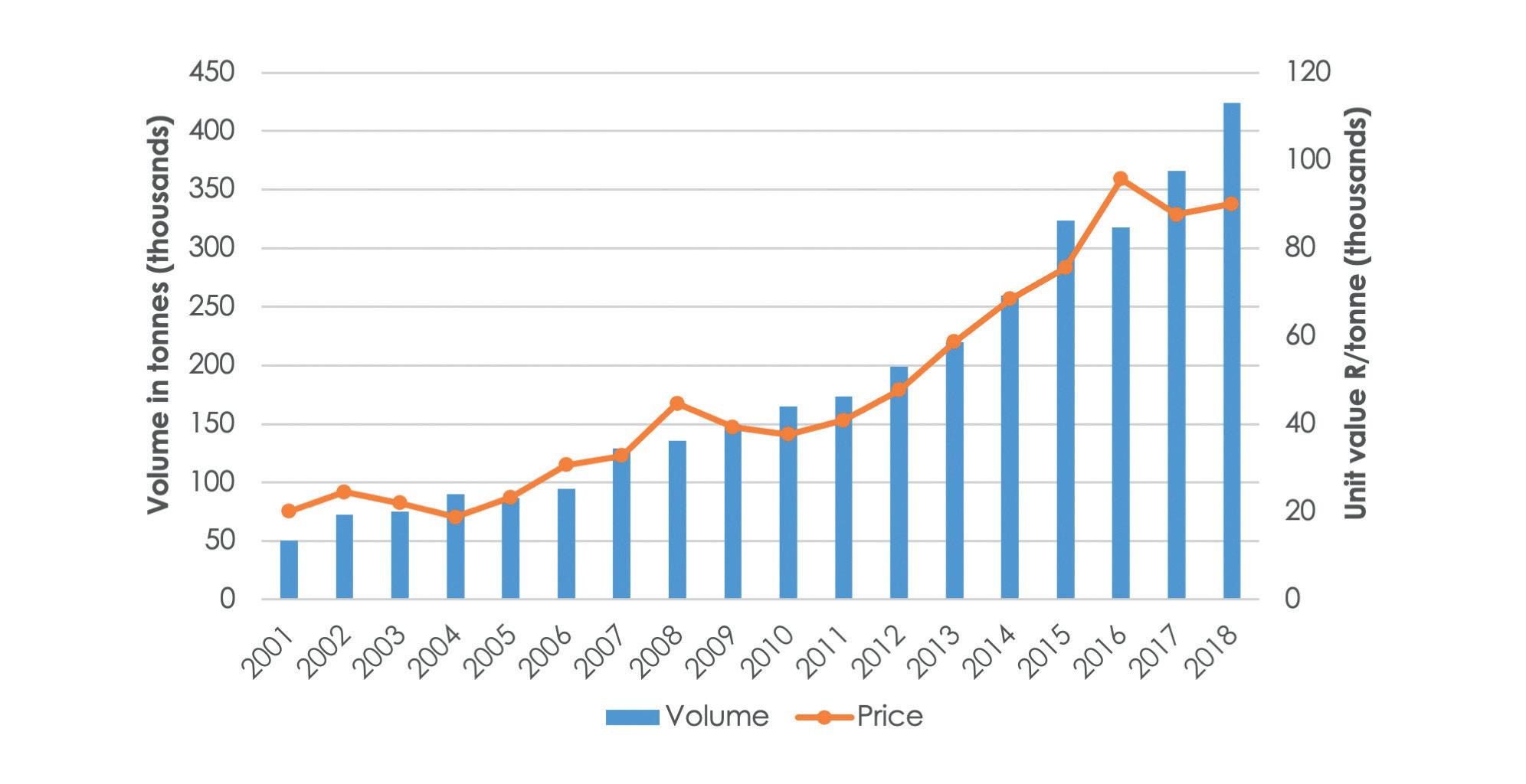
2 minute read
First footsteps into virtual conferencing and information days leave huge footprints
by WCDOA pubs
by Dr Ilse Trautmann, ilset@elsenburg.com and Dr Johann Strauss, johannst@elsenburg.com
TThe Fourth Industrial Revolution (4IR) has elicited statements like “we stand on the brink of a technological revolution that will fundamentally alter the way we live, work, and relate to one another”. Little did we know that the COVID-19 pandemic would fast-track our understanding of technology, the application thereof and the ease with which we would adapt to the new way of doing business and communicating with our clients.
The Western Cape Department of Agriculture has an annual technology transfer calendar, which delivers client-focused and problem-solving technical information emanating from the extensive research portfolio of the Research and Technology Development programme to farmers in the Western Cape.
Due to the COVID-19 pandemic, the first event to be presented virtually (online) was the Conservation Agriculture Western Cape (CAWC) conference, better known as the CAWC “Jack Human” conservation agriculture week. The week brings together national and international researchers, industry role-players, and farmers to share their knowledge and experiences around conservation agriculture. The conference has proven very successful over the past seven years, which is due to an excellent group of collaborators in the CAWC, Landbouweekblad , and the department.




Initially, the conference was to be conducted live, but after some consultation it was decided to rather go with pre-recorded contributions. Attendees could still comment and ask questions while watching the different lectures and practical sessions, all of which were to be answered following the closing of the event. The conference remained “open” for a week of viewing to accommodate possible issues with poor internet connections in the countryside and time differences with international speakers from different time zones.
The production of the virtual event was done by the experts of the department. A fast learning curve and long hours of recording and editing brought an excellent and very successful conference to the viewer – or rather the “online delegate”.

Twelve lectures and nine practical sessions on the research trials at our Langgewens and Tygerhoek farms brought both theory and “look and see” to the delegates. Topics such as effective nitrogen fixing by legumes, the importance of carbon for the farmer, effective nitrogen management, insect dynamics in conservation agriculture and the advantages of cover crops were delivered to 267 attendees. Speakers from Western Australia, the University of the Free State, and local researchers and farmers delivered interesting talks. The feedback has been very positive. The advantage of the virtual offering was that more delegates could attend, less time was spent on travelling and conference arrangements, and international speakers could attend without any flight challenges.
The success of the first virtual event was followed by three more information days: the Hopefield, SKOG and Riversdale days, which went live on the CAWC website on 7 September 2020. The information days www.blwk.co.za
The last virtual event for 2020, launched during September, was the popular Outeniqua information day where our latest pasture and dairy research was
The face-to-face contact between researchers and farmers and other stakeholders, however, is still the ideal, but the success of the first virtual event during the current COVID-19 pandemic is testimony to the ability of our department to respond to external challenges in a rapid and effective way, thereby ensuring that our stakeholders continue to receive the latest technical










